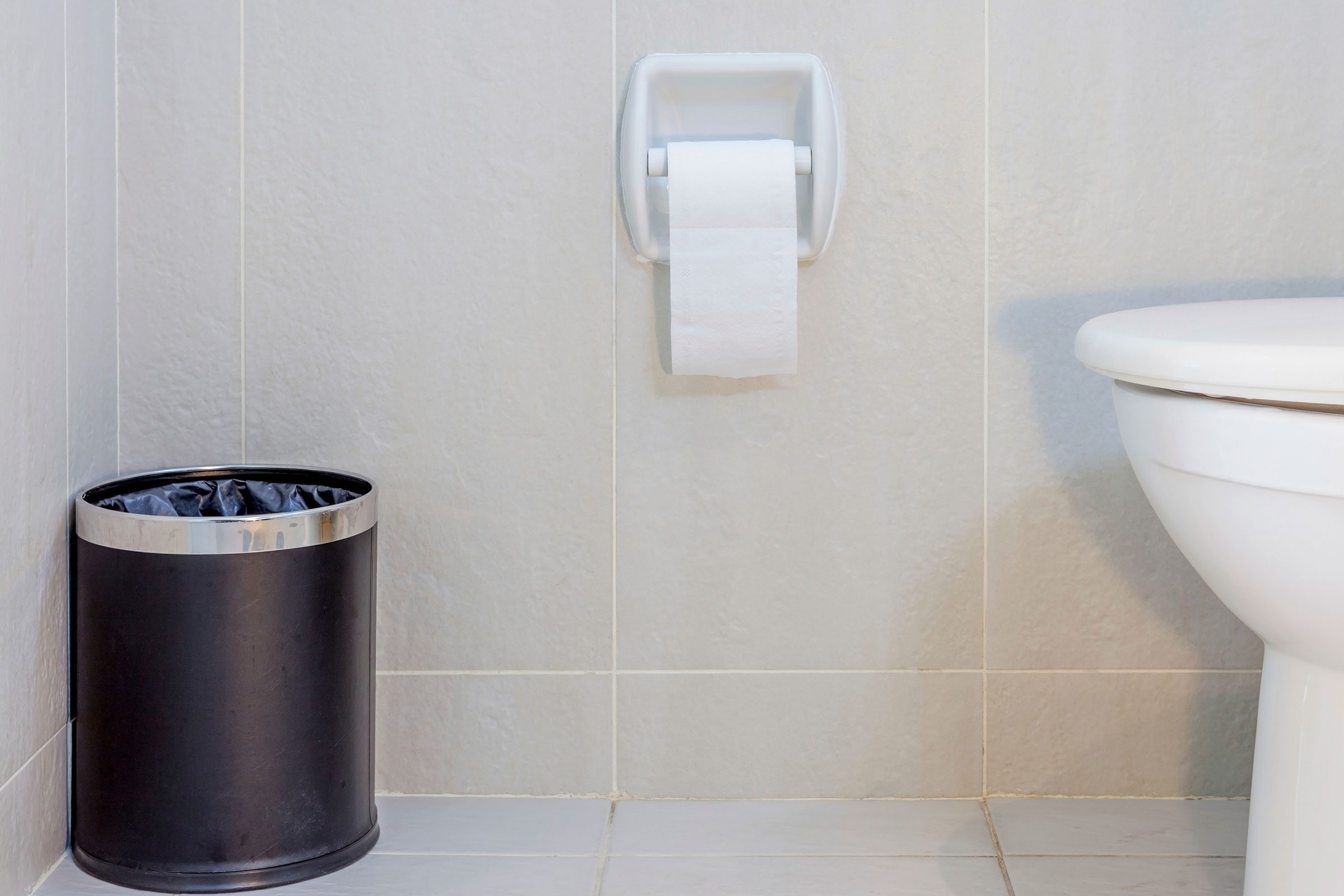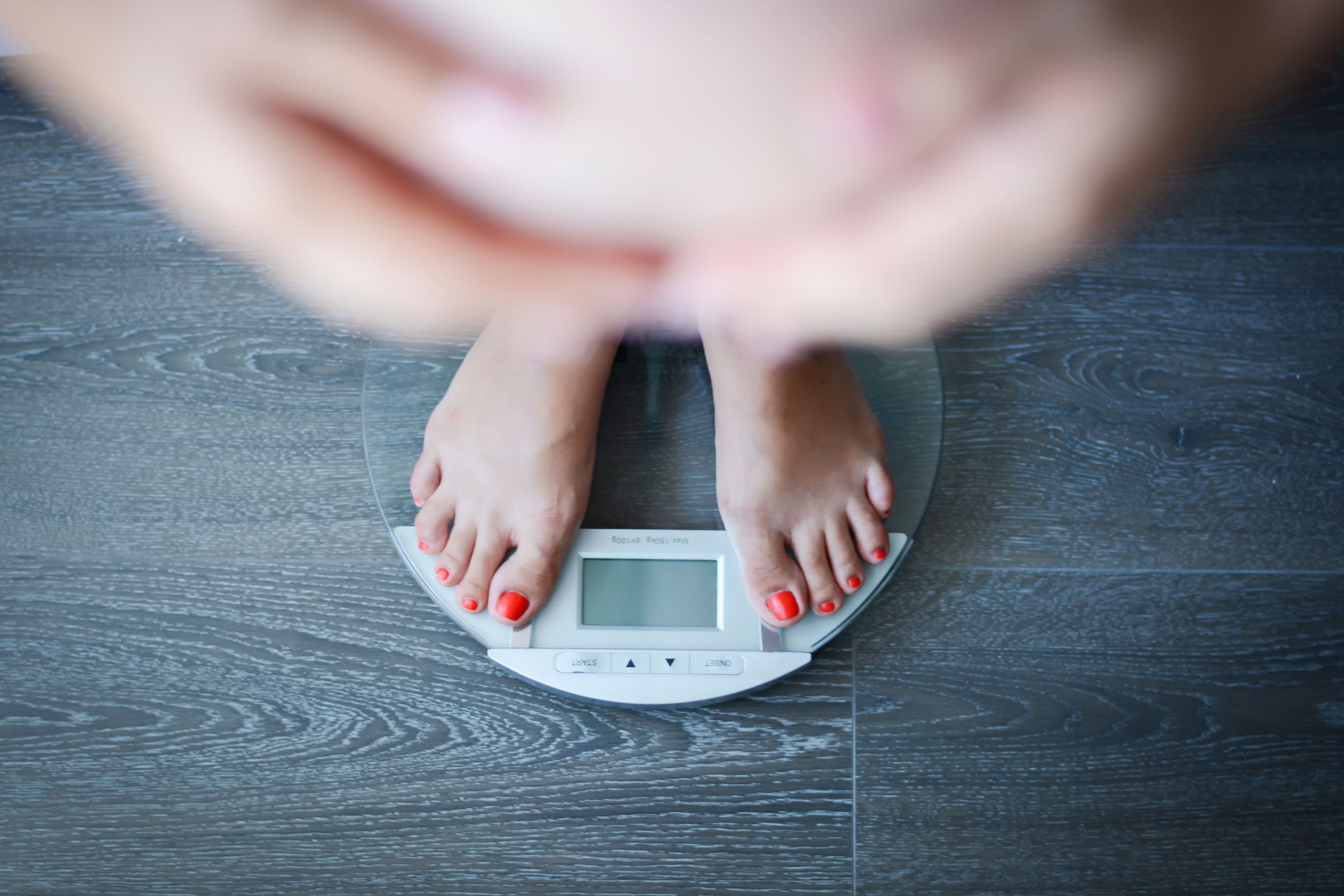
Blurred vision
Gestational diabetes, which occurs when pregnancy hormones interfere with the body’s ability to regulate blood sugar, is actually difficult to diagnose through symptoms alone because it mimics typical pregnancy complaints. This is why in 2014, the U.S. Preventative Task Force recommended gestational diabetes screening for all pregnant women after 24 weeks, a test in which you drink a sweet liquid to see how your body handles the sugar. But there are some signs that, if you experience them together, should prompt a call to your doctor. One such symptom is blurred vision. “When blood glucose is high, the water content of the eye structures is affected, making it harder to focus,” says Clara Ward, MD, a maternal-fetal medicine specialist at McGovern Medical School at UTHealth and Children’s Memorial Hermann Hospital in Houston. “It can be a chronic vision problem if the sugars are always high, or sudden and transient after a very indulgent meal.” Once your blood sugar is under control, your vision should go back to normal.

Fatigue
It’s totally normal to be tired during pregnancy due to hormonal changes—according to a poll by the National Sleep Foundation, 78 percent of women had more disturbed sleep during pregnancy, and up to 60 percent took naps. But excessive fatigue can also be one symptom of gestational diabetes. “When sugars are high, your cells and organs can’t get and use the oxygen and nutrients they need to produce energy,” Dr. Ward says. “Fatigue is the body’s way of trying to get us to rest.”

Increased thirst
Feeling thirsty is typical in pregnancy—you need extra fluid to build up your blood volume and help your kidneys flush out excess waste. But according to the National Institute of Diabetes and Digestive and Kidney Diseases, it’s also one of the main symptoms of diabetes—including gestational diabetes. “When blood sugar is high, the body pulls water from the cells to dilute the level of sugar in the blood,” Dr. Ward says. “High sugars also overwhelm the kidneys, preventing them from reabsorbing water.” Make sure you’re drinking enough water to avoid dehydration—the Institute of Medicine recommends about 10 eight-ounce glasses of fluid a day during pregnancy. Continued thirst beyond that warrants a call to your doctor. Check out these unexpected signs of dehydration.

Increased urination
Pregnant women are always peeing, in part because more blood flow means more urine is produced. (Not to mention the baby pressing on your bladder!) But women with gestational diabetes have even more reason to hit the bathroom. “When the kidneys are overwhelmed by excess sugar, they work harder and produce more urine,” Dr. Ward says. “As the sugar gets higher, more spills into the urine, which is a vicious cycle that causes more urination, and consequently, more dehydration.” Check out the things your bladder secretly wants to tell you.

Nausea and vomiting
According to the American Academy of Family Physicians, up to 74 percent of pregnant women experience nausea and vomiting, due to the increase in certain hormones. But it also may be a symptom of gestational diabetes. “Sugars that accumulate in the blood that the cells can’t use as fuel cause a buildup of toxic substances called ketones, which can lead to nausea and vomiting,” Dr. Ward says. So how can you tell the difference between what’s normal and what’s not? A report from the University of Wisconsin recommends lab tests to rule out causes of concern, like gestational diabetes, in cases of continued nausea and vomiting especially past the first trimester. Don’t miss the natural remedies for morning sickness that pregnant women swear by.

Weight loss despite increased appetite
The relationship between weight and gestational diabetes is a tricky one. According to the CDC, many, but not all, women who get gestational diabetes are overweight or obese before their pregnancy. Although you should try to be of a healthy weight pre-pregnancy and not to gain too much while you’re expecting, you should never try to lose weight while pregnant. Guidelines from the National Institute of Child Health and Human Development say that weight loss can be dangerous during any part of your pregnancy and should be reported to your doctor. “In diabetes, when the cells can’t use the sugars as fuel, the body interprets this lack of energy as starvation, and stimulates the appetite,” Dr. Ward says. “This creates a vicious cycle: All the food taken in still cannot be used properly by the body and gets lost in the urine, which results in weight loss.” Although a study from the University of Washington found that overweight women who lost weight after a gestational diabetes diagnosis had lower birthweight babies (babies of moms with gestational diabetes are at risk of being too big), they also had a greater chance of preterm delivery and babies who were small for gestational age. So let your doctor know about any weight loss—if you’re diagnosed with gestational diabetes, your OB will put you on a plan for a healthy diet.

Frequent infections
Research has shown that people with diabetes are more prone to infection. Pregnancy already makes women more prone to vaginal and urinary tract infections, and the risk only increases if you develop gestational diabetes. “Diabetes increases the susceptibility for infections, most commonly in the skin, vagina, or urinary tract,” Dr. Ward says. “Bacteria and yeast feed on glucose, so the more sugar that’s in the blood, the more they thrive. High sugars also cause the immune system to malfunction, making it less effective at fighting infection.” If you’re getting continued infections, ask your doctor to look into the cause. Here’s what your vagina wishes you knew.

Snoring
Even if you’ve never snored before, normal swelling during pregnancy can cause nasal passages to constrict, leading to snoring. But snoring has also been linked to gestational diabetes, as a study from Northwestern showed. “Snoring is a symptom of airway obstruction, which leads to less oxygen while sleeping,” Dr. Ward says. “This increases stress hormones, which make it harder for the body to control blood sugar.” Although symptoms like snoring can be normal during pregnancy, they can also be silent indications that you may be developing gestational diabetes. That’s why it’s important to follow through with your regular glucose screenings, and let your doctor know if you are concerned about any symptoms you’re experiencing.
